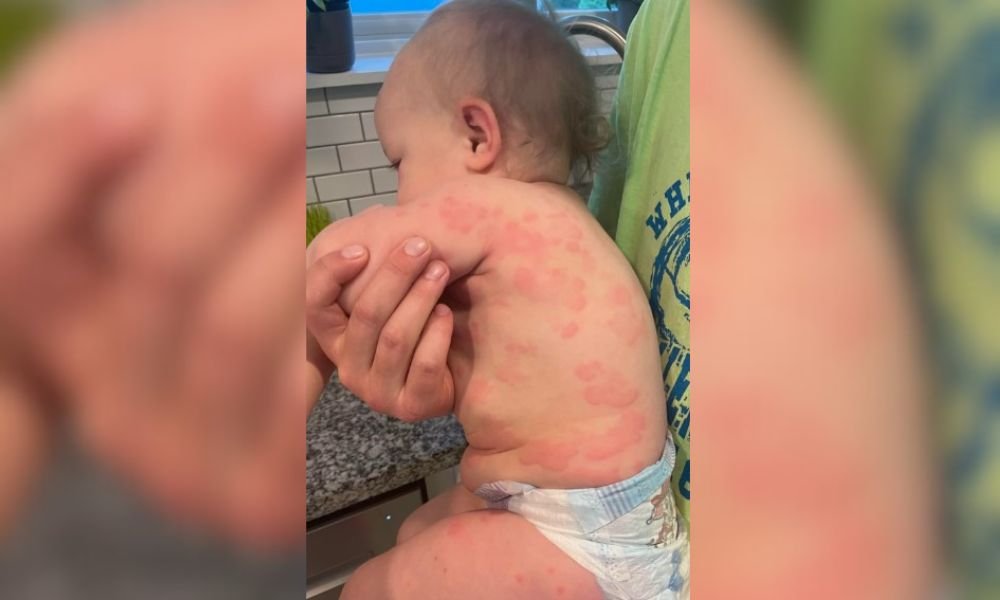Nut allergies are a significant concern for many parents, especially as they can lead to severe allergic reactions. This guide aims to educate you on nut allergies, their symptoms, diagnosis, and effective strategies to mitigate their impact on your child.
What is Nut Allergy?
Nut allergy is an adverse immune response to proteins found in certain nuts. It is one of the most common and potentially severe food allergies. Nut allergies can be divided into two main types: tree nut allergies (such as almonds, walnuts, and cashews) and peanut allergies (peanuts are legumes but often grouped with tree nuts due to similar allergic reactions).
Who is More Prone to Nut Allergy?
Nut allergies are more likely to occur in children who:
- Have a family history of allergies, asthma, or eczema.
- Suffer from other allergic conditions, such as hay fever or other food allergies.
- Have atopic dermatitis, which increases the likelihood of developing food allergies.
Symptoms of Nut Allergy
Symptoms of nut allergy can range from mild to severe and may include:
- Skin Reactions: Hives, eczema, or swelling of the lips, face, and eyes.
- Gastrointestinal Symptoms: Abdominal pain, nausea, vomiting, or diarrhea.
- Respiratory Symptoms: Runny nose, wheezing, coughing, or shortness of breath.
- Anaphylaxis: A severe, potentially life-threatening reaction characterized by difficulty breathing, rapid pulse, and a drop in blood pressure, requiring immediate medical attention.
Is Nut Allergy Contagious?
Nut allergy is not contagious. It is an immune system response and cannot be transmitted from one person to another.
Diagnosis of Nut Allergy
To diagnose nut allergy, a pediatrician may:
Review Medical History:
Assess your child’s symptoms and any family history of allergies or asthma.
Physical Examination:
Conduct a thorough examination to identify any allergic reactions.
Allergy Testing:
- Skin Prick Test: Introduces small amounts of nut proteins to the skin to observe reactions.
- Blood Test: Measures the level of IgE antibodies to specific nut proteins.
Oral Food Challenge:
Under medical supervision, your child consumes small amounts of nuts to monitor any reaction.
Treatment and Management of Nut Allergy
Managing nut allergy involves avoiding exposure to nut proteins and addressing symptoms promptly:
Avoiding Nuts and Nut Products:
- Read Labels Carefully: Check ingredient lists for nuts and nut-derived products.
- Avoid Cross-Contamination: Ensure that foods are prepared in a nut-free environment to prevent accidental exposure.
- Educate Caregivers: Inform family members, caregivers, and school staff about your child’s nut allergy and the importance of avoiding nuts.
Medications:
- Antihistamines: Relieve mild allergic symptoms like hives or itching.
- Epinephrine Auto-Injector or EpiPen: Prescribed for severe reactions (anaphylaxis) to be used immediately in emergencies.
Always follow your pediatrician’s instructions regarding medications.
Emergency Action Plan:
Develop a comprehensive action plan outlining steps to take during an allergic reaction. Once you have educated yourself on emergency care, it is vital that you educate any other adult who will be caring for your child. These adults should know CPR and should have an EpiPen kit. Ensure everyone involved in your child’s care understands the plan and knows how to administer emergency medication. Ensure school staff are aware of your child’s allergy and know how to use emergency medications.
Regular Monitoring:
Schedule regular follow-ups with your pediatrician to monitor your child’s condition and adjust management strategies as needed. Keep track of symptoms and triggers to identify patterns and adjust management strategies.
Conclusion
Managing nut allergies in children requires vigilance in avoiding allergens, being prepared for emergencies, and educating caregivers. By taking these steps, you can significantly reduce the impact of nut allergies on your child’s life. If you have any concerns or need personalized advice, don’t hesitate to consult with your pediatrician.
Your child’s health is our priority. Let’s work together to keep them healthy and safe!
For personalized advice and treatment options, please consult:
Dr. Kritika Agarwal, Pediatrician and Adolescent Specialist
Pinnacle Health Multispeciality Clinic
Hosa Road, Bangalore








